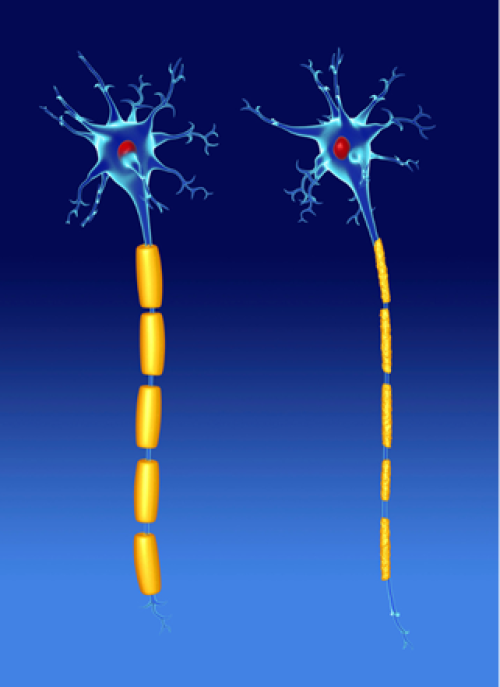Multiple Sclerosis (MS): Disease monitoring
How to recognize MS relapse
Relapse in MS, also called exacerbation, attack or flare-up, is a deterioration in the patient’s symptom status – either through occurrence of new symptoms or exacerbation of pre- existing symptoms1.
Clinically defined, a relapse must1:
- Persist for ≥24 hours
- Occur ≥30 days from a previous relapse
- Occur in the absence of infection or other causes
Patient–physician partnership
Discussions between patient and physician should include patient views on treatment options and their personal treatment goals2. Patients may not always report symptom appearance or exacerbations; 46% of patients in a UK survey did not report a relapse3, mainly because they deemed the symptoms too mild to inform their clinician or felt that it would be futile to do so. On the other hand, studies have consistently shown a correlation between relapses in the first few years of MS and later levels of disability, demonstrating the importance of effective monitoring and reporting of symptoms and relapses2.
Consider the importance of in-depth evaluation of patient status to inform treatment plans and translate research evidence into effective clinical care in this video ‘First do no harm – The gap between what we know and what we do’.
References
- Managing relapses in multiple sclerosis. Accessed at: https://www.nationalmssociety.org/managing-ms/treating-ms/managing-relapses
- Giovannoni G, Butzkueven H, Dhib-Jalbut S, Hobart J, Kobelt G, Pepper G, Sormani MP, Thalheim C, Traboulsee A, Vollmer T. Brain health: Time matters in multiple sclerosis. Accessed at: https://www.msbrainhealth.org/recommendations/brain-health-report/
- Duddy M, Lee M, Pearson O, Nikfekr E, Chaudhuri A, Percival F, Roberts M, Whitlock C. The UK patient experience of relapse in multiple sclerosis treated with first disease modifying therapies. Mult Scler Relat Disord 2014; 3(4): 450–456. doi: 10.1016/j.msard.2014.02.0
Register
Healthcare professionals: register now to access up-to-date information about MS treatment.




